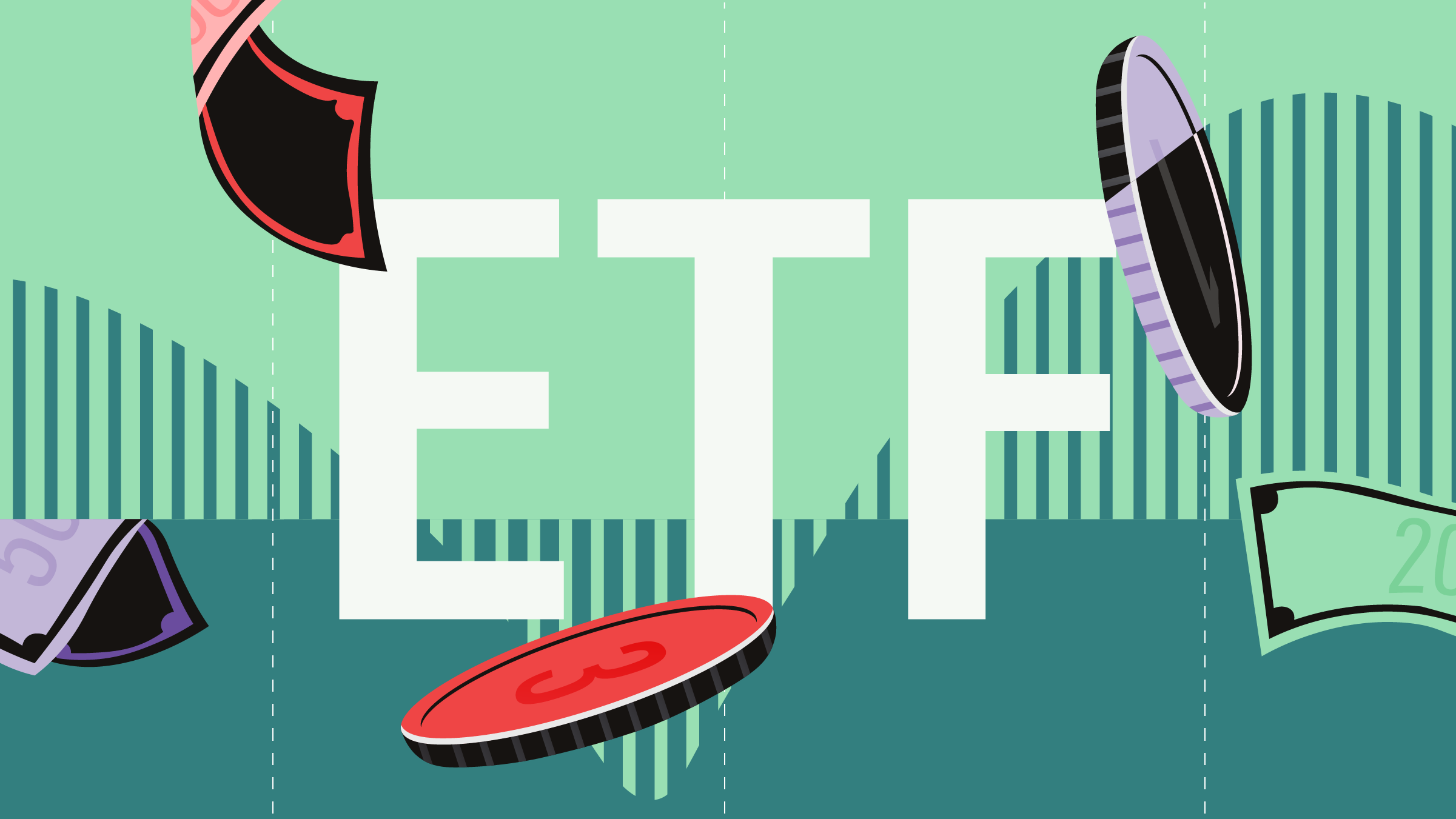Nikita Arora: For Morningstar.ca, I'm Nikita Arora. Karl Cheong of First Trust says he is seeing high interest in high-yield bond ETFs. He’s here today to tell us what they are all about.
Karl, tell us where is this interest coming from.
Karl Cheong: We're seeing a certain amount of interest in high-yield bonds over the last couple of weeks, particularly within our complex. I think the nice thing about today's environment is that there is yield to be had in various places. Just a few years ago, there was no yield anywhere, and high-yield bonds were yielding about 5%. Now there are pockets of distress, and it really is important now to really pick your spots going forward.
Arora: You’re the head of ETFs at First Trust. For investors looking into high-yield bond funds, should they go into ETFs or traditional mutual funds?
Cheong: For the most part, bond ETFs and bond mutual funds are the same. They both allow investors a diversified basket of bonds with a single purchase, putting instant diversification in your hands. All else equal, though, just like traditional equity ETFs, bond ETFs, when compared to bond mutual funds, have certain advantages. They tend to be lower cost, more tax-efficient, more transparent, and can provide you more targeted access to different areas of the bond market.
Now with that, there comes a wrinkle, and that's how you kind of buy and sell shares. First, when you buy a mutual fund, you buy it at 10 a.m., you buy it at 2 p.m., it really doesn't matter. You're actually getting it processed at the end-of-day NAV at 4 p.m. An ETF works differently. Similar to a stock, you could buy an ETF at 10 a.m., sell it again at 12, buy it again at 2 if you're crazy, but it provides that real-time price discovery and intra-day liquidity that is not available in mutual funds.
The second thing I'd mention is that when you take a look, every dollar that goes in and out of the mutual fund is felt by that money manager. What does that mean? Every time you put money in, that bond manager needs to go out into the bond market and buy a couple of bonds. Every time you take money out, same scenario. The bond manager has to go sell bonds in the open marketplace to fund that redemption. An ETF, by contrast, has institutional traders called market makers that trade shares for us, so we don't feel every dollar. For example, we saw a significant drawdown in high-yield in December and we saw the two largest ETFs, JNK and HYG, trade at about $14 billion in a week, but only saw about $2 billion of redemptions. That's seven times the amount of volume, the shares that are traded in the underlying or felt by the underlying ETF. So, would you rather own a mutual fund in that case or an ETF? I think the answer is pretty simple. The ETF is a better solution.
Arora: So ETFs are the answer. You say active management gets the best results in the high-yield bond space. Why is that?
Cheong: The trend has been very strong towards passive investing, particularly because equity managers have failed to beat their benchmarks consistently. But when you look at the bond market, bond managers have been able to add alpha, over time or beat their bond benchmarks over a full market cycle. So why is fixed income different? I think there are a couple of reasons.
One, bonds trade over the counter, versus an exchange, so there is a lot less information that's being shared. I always give an example: Not every analyst on Bay Street and Wall Street provides buy and sell recommendations on individual bonds, right? Part of the reason why I think bond managers can outperform in that market is there is a lot less information circulating among market participants, and you don't get that same type of efficiency you see in the equity markets.
The second thing, when you take a look at the index or the passive-based approach, it really follows a flawed methodology, especially when it comes to fixed income. And what do I mean by that? When you take a look at equities, an equity index that is market cap weighted, that market cap usually tells you something about the firm. It tells you that Rogers Communications or TD Bank or some other huge firm justifies being there because, possibly, the valuation is there. When it comes to fixed income, the weightings of the index are solely determined by the debt outstanding. Every single time an issuer goes out and borrows, you lend them more in that case, and then it gets a higher weight in the index.
Now think about how counterintuitive that is. If I were to call you up and ask to borrow $1,000, you may want to know when I'm going to repay you. How am I going to repay you? Do I even have a job? None of that analysis takes place in the index-based approach.
Arora: So you are saying that the arbitrage and the alpha opportunities exist more for the bond managers?
Cheong: Right. And the numbers play out over time, and that's been the case. There are certain studies by S&P and a few others that have looked at the returns of equity managers and bond managers and, surprisingly, bond managers have outperformed when I think most people expect them not to.
Arora: What are the risks investors should worry about?
Cheong: Going forward, I mean, the second half of last year was probably one of most challenging we've seen within the credit markets, in particular since the global financial crisis. We saw risk sentiment turn extremely negative in the third and fourth quarter amidst slowing global growth caused mostly by China and the impact it had on commodities like oil. But given all the volatility we're seeing in the marketplace, I think it's important to have some perspective.
During the month of May, the average high-yield bond was yielding over 10%, which generally signals recession in the U.S. But I don't think we have the conditions for a recession. Central banks around the world are still being very accommodative and we've seen six consecutive years of job growth in the U.S.
Going forward, I would say there are two possible scenarios that most likely will play out in high-yield. The first one is, say we go into a recession. Defaults will spike outside of energy. We are all expecting some of the energy companies to default. But defaults will spike outside of energy. And two, you are going to see spreads widen. For an investor, I don't think you are going to have that much downside protection over the next couple of years.
The second scenario: The U.S. avoids recession. Yields compress from to about 500 to 600 basis points off Treasuries from over 800, which is what we see today, and investors can potentially generate equity-like returns with a fraction of the volatility. I think some bond prices in the high-yield space are just so low, they didn't even need to go up for you to have a pretty good return. But I think, going forward, it's going to be imperative to choose a manager with an active discipline. I can't harp on that enough because we don't think the index-based approach is going to work in the next economic cycle. And you can see that in the category returns within high-yield. For example, the First Trust Short Duration High Yield ETF, our fund, ticker FSD, has generated strong risk-adjusted returns over the last year because it's largely avoided energy, metals and mining and avoided the drawdown we saw there due to fundamentals.
Arora: Thanks, Karl.
Cheong: Thanks.
Arora: For more on bond investing, click on the link below this video. Visit Morningstar.ca for your investment news and updates.



















